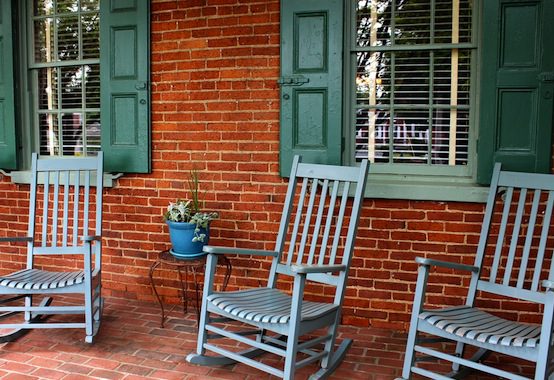Town And Country

I wish to associate myself with these remarks by my colleague Gracy Olmstead. Excerpt:
As a “crunchy con“-leaning girl with strong ties to farmland and agrarian culture, I love to champion a Wendell Berry-esque conservatism that savors the beauty of fields, farmland, and small-town community. Indeed, Wendell Berry’s writings—though excellent and full of good thoughts—do have this tendency to reverence the rural and unfairly criticize the cosmopolitan. Sadly, many conservatives (myself included) confuse this love of the “pastoral” with a proper love of “place.” We think that, in order to be “rooted” to a specific plot of land, we must be rooted in a country haven.
However, when one really considers the urban nature of America, it makes no sense—and indeed, it would be detrimental—for all of America’s conservatives to abandon urban areas and cosmopolitan centers for a secluded country lifestyle. We may need our countryside Benedictine havens—but we might also need a few similar havens within the city itself.
I strongly agree. I run into people from time to time who think that the point of The Little Way Of Ruthie Leming is that we should all move to small towns. Not so! The point, as Gracy perceives, is that wherever you live, work to root yourself there.
Gracy’s post was inspired by this Matt K. Lewis column, in which he criticizes the conservative tendency to see rural America as the “real” America. Matt grew up in rural western Maryland, but now lives in DC. Excerpt:
As a boy growing up in rural western Maryland (seriously, this was physically and stylistically closer to West Virginia than Baltimore), it was instilled in me that country folks were God-fearing, salt-of-the-earth types and that big city folks weren’t.
The sense wasn’t just that cities were different, but that they were somehow morally inferior.
This feels familiar. I can’t recall that I was explicitly taught this, but it was implicit in the culture in which I was raised. New Orleans was two hours away, but it may as well have been on the other side of the world. Why would you go there? That was where you would get your throat cut. They don’t value human life there. Baton Rouge (45 minutes away back then) was bad enough, but New Orleans — were those people even like us? Again, none of this was explicit, but it was simply assumed without argument that we were, well, God-fearing, salt-of-the-earth types and that big city folks weren’t. Lewis continues:
Deep down, I suppose I’m still a country boy at heart. But I haven’t been bored or depressed since leaving “God’s country.” Maybe Patrick Somerville’s This Bright River gets it right?: “It’s darker and stranger in small towns than almost anywhere.”
This is not to say that cities are all good. As Keller likes to note, they are intense reflections of the culture. But it does seem true that many of the preconceived notions about the virtues of an Arcadian existence — and the horrors of urban life — are based on faulty or misleading assumptions. We have simplified things in an effort to glorify a simple life.
Yes, this is true. Some people are just made to live in the city, and wouldn’t flourish anywhere else. For most of my adult life, I was crazy about the city, and couldn’t imagine living anywhere else. It was only middle age, and the death of my sister, that moved me on that point — that, and the fact that I come from, and was able to come back to, a pretty great little town. I’m settled here, and am not bored at all, as I was and would have been in my teens, twenties and thirties. You get older, you want different things out of life. I’ve become a far less outgoing person, far less in need of the constant stimulation the city provides; these days, nothing makes me happier than staying inside around my books and in my kitchen, and being quiet. I didn’t foresee becoming this kind of person when I was younger, and in love with the city.
Though I wouldn’t want to move back, I suspect that I will always feel more at home in the city, as, I predict, my oldest and youngest children will. Yet it delights me to look at my son Lucas, 10, and to see how happy and rooted he is in the country. He fits here in a way I do not and never did. From experience, though, I see it as my parental duty to make sure none of my children see the place in which they choose to live as morally superior to its opposite. We see too much of that in our culture, from both sides of the rural-urban divide.
Subscribe for as little as $5/mo to start commenting on Rod’s blog.